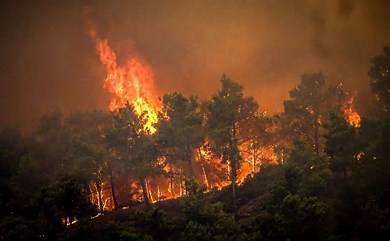
The World Meteorological Organisation (WMO) has reported a concerning surge in greenhouse gas concentrations, setting an unprecedented record in 2023. This troubling increase underscores the growing difficulty in controlling global warming and meeting the goals set by the Paris Agreement.
The report highlights an accelerated rise in carbon dioxide (CO₂) emissions, which have grown by more than 10% in just the past two decades. WMO Secretary-General Celeste Saulo expressed alarm, stating, “This should set alarm bells ringing among decision-makers. We are clearly off track to limit global warming to well below 2 °C, and aiming for 1.5 °C seems increasingly out of reach.”
In 2023, major forest fires and reduced carbon absorption by natural ecosystems, coupled with persistently high fossil fuel emissions, contributed significantly to the CO₂ increase. The WMO’s Greenhouse Gas Bulletin notes that while the 2023 rise in CO₂ levels is slightly lower than the previous three years, it still marks the twelfth consecutive year with an increase greater than 2 parts per million (ppm).
Ko Barrett, WMO Deputy Secretary-General, cautioned against the potential for harmful climate feedback cycles. “In the near future, climate change itself could make ecosystems larger sources of greenhouse gases,” she noted. Events like wildfires could release more CO₂, and warmer oceans might absorb less, trapping more carbon in the atmosphere and intensifying global warming.
Each rise in CO₂ levels leads to temperature increases that have direct effects on human societies, ecosystems, and economies. The WMO’s 2023 findings serve as a stark reminder of the urgent need for global climate action to reduce emissions and mitigate feedback loops that could further destabilize the climate.















